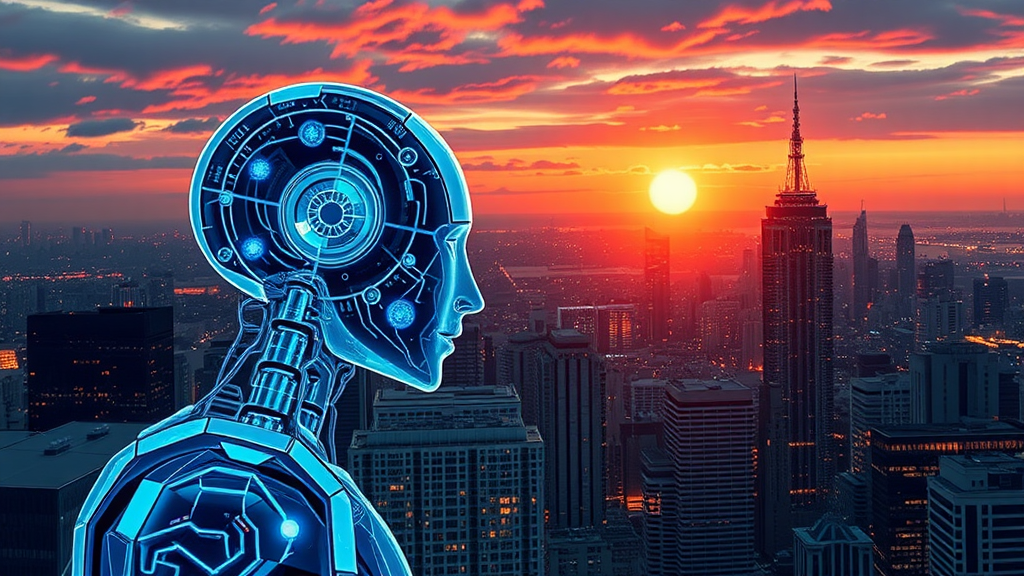AI’s Impact on the Future of Work
The Transformative Impact of AI on the Future of Work
The rapid advancements in Artificial Intelligence (AI) are poised to have a profound and far-reaching impact on the future of work. As AI technologies continue to evolve, they are becoming increasingly capable of automating a wide range of tasks and functions, from routine administrative work to complex decision-making processes. This shift is set to redefine the very nature of employment, as both blue-collar and white-collar professions are impacted by the integration of AI systems.
Automating Repetitive Tasks
One of the most immediate effects of AI on the workforce is the automation of repetitive and manual tasks. AI-powered algorithms and robotic systems are capable of performing a wide range of tasks with greater speed, accuracy, and consistency than human workers. This automation is particularly evident in industries such as manufacturing, logistics, and customer service, where routine operations can be handled by AI-driven systems. As a result, many entry-level and mid-skill jobs are at risk of being displaced, requiring workers to adapt their skillsets to remain competitive in the labor market.
Augmenting Human Capabilities
While AI has the potential to replace certain job functions, it also presents opportunities for human workers to augment their capabilities. AI-powered tools and assistants can enhance decision-making, problem-solving, and analytical abilities, allowing workers to focus on more strategic and creative tasks. In fields such as healthcare, finance, and scientific research, AI can assist professionals in analyzing vast amounts of data, identifying patterns, and making informed decisions more efficiently. This collaborative approach between humans and AI can lead to increased productivity, improved decision-making, and the exploration of new frontiers in various industries.
Reshaping Skill Demands
The rise of AI is also transforming the skills that are in high demand in the job market. As routine tasks become automated, there is a growing need for workers who possess critical thinking, problem-solving, and adaptability skills. Employees will need to continuously update their knowledge and acquire new competencies to remain valuable in an AI-driven workforce. This shift in skill demands will require educational institutions and employers to rethink their training and development programs, ensuring that workers are equipped with the necessary skills to thrive in an increasingly automated work environment.
Add AI with the help of experts who get it
Ethical Considerations and Workforce Transition
As AI continues to reshape the job market, there are important ethical considerations that must be addressed. The displacement of workers due to automation raises concerns about income inequality, job insecurity, and the social impact on communities. Policymakers and business leaders will need to collaborate to develop strategies that ensure a fair and equitable transition for displaced workers, such as retraining programs, social safety nets, and policies that incentivize the responsible deployment of AI technologies.
The Rise of New Professions
While AI may disrupt traditional job roles, it also presents opportunities for the emergence of new professions. As AI systems become more sophisticated, there will be a growing demand for experts in fields such as AI ethics, AI governance, and AI-powered service design. These new roles will require a unique combination of technical, ethical, and creative skills, as companies and organizations navigate the complex landscape of AI integration and deployment.
The impact of AI on the future of work is both transformative and multifaceted. While the automation of tasks may lead to job displacement, the integration of AI also offers the potential to enhance human capabilities, create new job roles, and reshape the skills required for success in the workforce. Navigating this shift will require proactive planning, collaboration between stakeholders, and a commitment to ensuring that the benefits of AI are equitably distributed throughout society.
Embracing the Automation Revolution
The Rise of Automation: Embracing the Future of Work
The world of work is undergoing a profound transformation, driven by the rapid advancements in artificial intelligence (AI) and automation. As these technologies continue to evolve, they are poised to reshape the very nature of employment, challenging traditional job roles and the way we approach our professional lives. This shift presents both opportunities and challenges, and it is crucial that we embrace the automation revolution with a forward-thinking mindset.
Add AI with the help of experts who get it
The Changing Landscape of Employment
Automation and AI are already making their mark on numerous industries, from manufacturing and logistics to healthcare and finance. Tasks that were once exclusively performed by human workers are now being automated, leading to increased efficiency, productivity, and cost savings for businesses. However, this shift also raises concerns about job displacement and the potential for widespread unemployment.
Upskilling and Reskilling: Adapting to the New Normal
To navigate this evolving landscape, it is imperative that workers and employers alike embrace the concept of lifelong learning. Continuous upskilling and reskilling will be essential to remain competitive and adaptable in the job market. Individuals will need to be proactive in acquiring new skills and embracing technological change, while employers must invest in training and development programs to equip their workforce with the necessary capabilities.
The Rise of Human-Machine Collaboration
Rather than viewing automation as a threat, it is important to recognize the potential for AI and robotics to complement and enhance human capabilities. By working in tandem with these technologies, workers can leverage their unique strengths, such as creativity, critical thinking, and emotional intelligence, to tackle complex problems and drive innovation. This human-machine collaboration will become increasingly essential in the future of work.
Navigating the Ethical Implications of Automation
As the automation revolution unfolds, it is crucial to address the ethical implications and potential societal impact of these technologies. Questions around data privacy, algorithmic bias, and the fair distribution of the benefits of automation must be carefully considered. Policymakers, industry leaders, and the public must work together to develop robust frameworks and regulations that ensure the responsible and equitable implementation of AI and automation.
Add AI with the help of experts who get it
Embracing the Entrepreneurial Spirit
The automation revolution also presents new opportunities for entrepreneurs and small businesses. By leveraging the capabilities of AI and automation, these entities can compete more effectively with larger corporations, driving innovation and creating new job opportunities. Embracing an entrepreneurial mindset and exploring innovative business models will be key to thriving in the evolving work landscape.
The Importance of Adaptability and Resilience
In the face of this transformative change, the ability to adapt and be resilient will be paramount. Individuals, organizations, and communities must be willing to embrace flexibility, experiment with new approaches, and continuously evolve to stay relevant and competitive. By cultivating a growth mindset and a willingness to adapt, we can navigate the automation revolution with confidence and seize the opportunities it presents.
: Shaping the Future of Work
The automation revolution is upon us, and it is up to us to shape the future of work. By embracing the transformative potential of AI and automation, while addressing the ethical and societal implications, we can create a more efficient, innovative, and equitable workforce. Through collaborative efforts, continuous learning, and a commitment to adaptability, we can harness the power of technology to redefine the way we work and thrive in the years to come.
Conclusion
The future of work is undoubtedly being shaped by the rapid advancements in artificial intelligence (AI). As AI systems become more sophisticated, they are poised to automate an increasing number of tasks and transform entire industries. While this automation revolution may raise concerns about job displacement, it also presents significant opportunities for workers and businesses alike.
One of the most significant impacts of AI on the future of work will be the automation of routine, repetitive tasks. AI-powered systems can perform these tasks with speed, accuracy, and efficiency, freeing up human workers to focus on more complex, creative, and strategic responsibilities. This shift can lead to increased productivity, cost savings, and the creation of new, higher-skilled jobs.
Add AI with the help of experts who get it
However, embracing the automation revolution will require a proactive and adaptive approach from both employers and employees. Businesses must invest in reskilling and upskaring their workforce, equipping them with the necessary skills to thrive in an AI-driven economy. Employees, on the other hand, must be willing to embrace lifelong learning and continuously enhance their capabilities to remain competitive.
Furthermore, the integration of AI in the workplace can also lead to the emergence of new job roles and industries. As AI-powered systems become more advanced, they can create demand for specialized roles in areas such as AI development, data analysis, and machine learning. These new opportunities can open up exciting career paths for workers and contribute to the overall growth and prosperity of the economy.
Ultimately, the future of work lies at the intersection of human ingenuity and AI-driven automation. By embracing the opportunities presented by this technological revolution and proactively addressing the challenges, we can create a future where AI enhances, rather than replaces, human contributions in the workplace.



